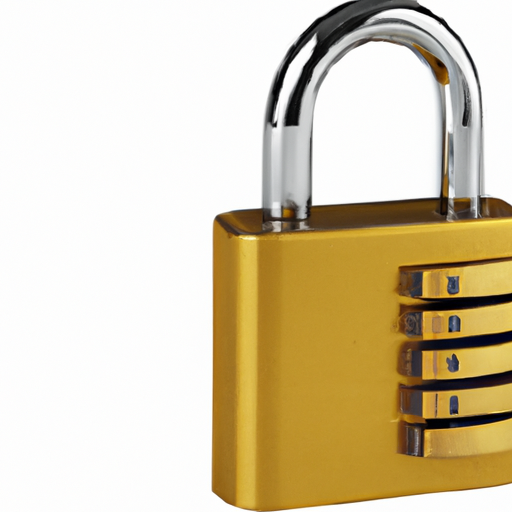Ensuring the security of sensitive information is vital for any business in today’s digital landscape. In this article, we will provide an overview of PCI compliance certification, a crucial aspect of data security for businesses that handle credit card information. Exploring the requirements and benefits of obtaining PCI compliance certification, we aim to equip business owners and decision-makers with the knowledge they need to protect their companies from data breaches and maintain the trust of their customers. By addressing common questions and concerns, we hope to assist readers in understanding the importance of PCI compliance certification and encourage them to seek professional guidance from our trusted lawyer to navigate this complex area of law.

What is PCI Compliance Certification?
Understanding the basics
PCI Compliance Certification refers to the process of meeting the requirements set forth by the Payment Card Industry Security Standards Council (PCI SSC) in order to ensure the secure handling of credit card information. The certification is obtained by businesses and organizations that process credit card payments, including e-commerce websites and third-party service providers.
The PCI SSC was established by major payment card brands such as Visa, Mastercard, American Express, and Discover in order to provide a unified set of standards for securing credit card data. Compliance with these standards is crucial for ensuring the protection of sensitive cardholder information and reducing the risk of data breaches and fraud.
The purpose of PCI compliance certification
The primary purpose of obtaining PCI compliance certification is to enhance the security and protection of credit card information. Compliance with the PCI Data Security Standards (PCI DSS) is not only important for safeguarding sensitive data, but it is also a requirement for businesses that process credit card transactions. Achieving PCI compliance certification demonstrates a commitment to maintaining the highest level of security practices, which can help build trust and confidence among customers and partners.
Additionally, PCI compliance certification helps businesses avoid costly financial penalties, reputational damage, and legal implications that may arise from non-compliance. By adhering to the PCI DSS requirements, organizations can establish a solid security foundation and reduce the risk of data breaches, protecting both their customers and their own reputation.
Benefits of obtaining PCI compliance certification
Obtaining PCI compliance certification offers numerous benefits for businesses. Some of the key advantages include:
-
Enhanced security: Achieving PCI compliance ensures that a business has implemented stringent security measures to protect credit card data. This helps in reducing the risk of data breaches and unauthorized access.
-
Customer trust: Demonstrating PCI compliance certification reassures customers that their credit card information is being handled securely. This can build trust and confidence, encouraging customers to make transactions and establish long-term relationships with the business.
-
Legal compliance: Compliance with PCI DSS requirements helps businesses meet legal obligations related to the handling and protection of credit card information. This reduces the risk of legal liabilities and penalties.
-
Reputation management: Maintaining PCI compliance and obtaining certification helps protect a business’s reputation. In the event of a data breach, having PCI compliance measures in place can demonstrate that the business took reasonable steps to protect customer data.
-
Competitive advantage: PCI compliance certification can serve as a competitive differentiator, especially in industries where data security is a primary concern. Businesses that demonstrate a commitment to security are more likely to attract and retain customers, as well as strategic partners.
Who needs PCI Compliance Certification?
Businesses that process credit card payments
Any business that processes credit card payments, whether online or in-person, is required to obtain PCI compliance certification. This includes retailers, restaurants, hotels, and other establishments that accept credit card payments directly from customers. Compliance is necessary to ensure the secure handling and transmission of credit card data.
E-commerce websites
E-commerce websites that accept credit card payments online are also required to obtain PCI compliance certification. These websites handle sensitive customer information, including credit card details, and must implement the necessary security measures to protect this data from unauthorized access.
Third-party service providers
Third-party service providers that handle credit card data on behalf of other businesses or organizations are also subject to PCI compliance requirements. These providers include payment processors, hosting providers, software vendors, and other entities that interact with cardholder data. Obtaining PCI compliance certification is necessary to assure their clients that they have implemented the appropriate security measures.
The PCI Compliance Certification Process
Obtaining PCI compliance certification involves several steps that must be followed to ensure that businesses meet the required standards. The process typically includes the following steps:
Determining the applicable PCI compliance level
PCI compliance requirements vary depending on the volume of credit card transactions processed by a business. To determine the applicable compliance level, businesses must assess their annual transaction volume and consult the PCI DSS guidelines. The compliance level determines the level of security measures that must be implemented.
Conducting a self-assessment questionnaire
Once the compliance level has been determined, businesses are required to complete a self-assessment questionnaire (SAQ). The SAQ is a comprehensive questionnaire that assesses the business’s adherence to each of the PCI DSS requirements. It helps identify any gaps or areas for improvement in the organization’s security practices.
Engaging a Qualified Security Assessor
In some cases, businesses may be required to engage a Qualified Security Assessor (QSA) to conduct an independent assessment of their compliance with PCI DSS. A QSA is an external entity that has been certified by the PCI SSC to evaluate and validate compliance. The QSA will review the business’s security controls and practices, and provide a report of compliance.
Completing a vulnerability scan
Businesses are also required to conduct regular vulnerability scans to identify any potential vulnerabilities or weaknesses in their systems. A vulnerability scan is a process of scanning the network and systems for known security vulnerabilities. The results of the scan must be addressed and remediated in order to maintain compliance.
Submitting compliance reports to the relevant payment card networks
Once the required assessments, questionnaires, and scans have been completed, businesses must submit compliance reports to the payment card networks they have relationships with. These reports demonstrate the organization’s adherence to the PCI DSS requirements and may be subject to review and validation by the networks.
Key Requirements for PCI Compliance Certification
Installing and maintaining a firewall
One of the key requirements for PCI compliance certification is the installation and maintenance of a robust firewall. Firewalls act as a barrier between the business’s internal network and the external internet, helping to prevent unauthorized access to cardholder data. Firewalls must be properly configured and regularly updated to ensure effective protection.
Protecting cardholder data
Businesses must implement strong encryption and other security measures to protect cardholder data. This includes safeguarding data during transmission and storage to prevent unauthorized access. Secure encryption protocols and cryptographic systems must be used to ensure the confidentiality and integrity of cardholder data.
Implementing strong access control measures
Efficient access control measures must be implemented to restrict access to cardholder data to only authorized personnel. This includes using unique user IDs, strong passwords, two-factor authentication, and other authentication mechanisms. Access to sensitive data should be limited based on job roles and responsibilities, and regular reviews should be conducted to ensure access privileges are up to date.
Regularly monitoring and testing networks
Businesses must establish a robust monitoring and testing program to identify and respond to any security vulnerabilities or suspicious activities. This includes monitoring network traffic, reviewing logs, conducting regular security assessments, and performing penetration testing. Any anomalies or potential security incidents must be promptly investigated and addressed.
Maintaining an information security policy
A comprehensive information security policy must be established and maintained to guide employees on the proper handling of cardholder data. The policy should outline security objectives, responsibilities, and procedures to ensure the ongoing protection of sensitive data. Training programs and awareness campaigns should also be implemented to educate employees about data security best practices and policies.

Consequences of Non-Compliance
Financial penalties and fines
Non-compliance with PCI DSS requirements can result in significant financial penalties and fines. Payment card networks may impose fines on businesses that fail to meet the necessary security standards, and these fines can be substantial. The amount of the fines depends on various factors, including the severity of the non-compliance and the volume of credit card transactions processed by the business.
Damage to reputation
A data breach or any involvement in a security incident can severely damage a business’s reputation. Customers may lose trust and confidence in the organization’s ability to protect their sensitive data, leading to a loss of business and potential legal implications. Reputational damage can be difficult to recover from and may have long-lasting impacts on the success of a business.
Legal implications
Non-compliance with PCI DSS requirements can also have legal implications. Businesses that fail to adequately protect cardholder data may face lawsuits or regulatory investigations if a data breach occurs. In some jurisdictions, businesses may be subject to civil penalties or other legal consequences for non-compliance. It is essential for businesses to understand and meet their legal obligations to mitigate potential legal risks.
Choosing a Qualified Security Assessor
Understanding the role of a Qualified Security Assessor (QSA)
A Qualified Security Assessor (QSA) plays a crucial role in the PCI compliance certification process. QSAs are independent organizations or individuals certified by the PCI SSC to evaluate and validate compliance with PCI DSS requirements. They conduct thorough assessments of a business’s security controls, identify any gaps or vulnerabilities, and provide recommendations for achieving and maintaining compliance.
Evaluating the expertise and qualifications of a QSA
When choosing a QSA, it is important to evaluate their expertise and qualifications. Look for QSAs that have experience working with businesses in your industry and have a solid understanding of the specific security challenges faced by your organization. It is also essential to ensure that the QSA is certified by the PCI SSC and has a good reputation in the industry.
Considering the cost of engaging a QSA
Engaging a QSA comes with a cost, and businesses should consider this factor when planning for PCI compliance certification. The cost of engaging a QSA varies depending on factors such as the size of the business, the complexity of the infrastructure, and the scope of the assessment. While the cost is an important consideration, it is crucial to prioritize the expertise and quality of the QSA in order to achieve a thorough and reliable assessment.
Common Misconceptions about PCI Compliance Certification
Myth 1: PCI compliance certification guarantees 100% security
Obtaining PCI compliance certification does not guarantee 100% security against data breaches or other security incidents. Compliance certification is a snapshot of an organization’s security posture at a specific point in time and does not account for evolving threats and vulnerabilities. It is important for businesses to continually assess and improve their security practices to maintain a high level of security.
Myth 2: Small businesses are exempt from PCI compliance
Contrary to popular belief, small businesses are not exempt from PCI compliance requirements. Regardless of the size or transaction volume, businesses that process credit card payments are required to comply with PCI DSS. The specific compliance requirements may vary based on the volume of transactions but are still necessary to ensure the security of cardholder data.
Myth 3: PCI compliance certification is a one-time requirement
PCI compliance certification is not a one-time requirement but an ongoing process. Maintaining compliance requires businesses to regularly assess and update their security controls, conduct vulnerability scans, and address any identified vulnerabilities. Compliance should be viewed as an ongoing commitment to protect cardholder data and maintain the necessary security measures.
FAQs about PCI Compliance Certification
What is the cost of obtaining PCI compliance certification?
The cost of obtaining PCI compliance certification varies depending on various factors, including the size of the business, the complexity of the infrastructure, and the scope of the assessment. Engaging a Qualified Security Assessor (QSA) and conducting the necessary assessments and scans incur costs. It is recommended to obtain quotes from multiple QSAs and assess the level of expertise and quality they provide in order to make an informed decision.
How long does the certification process take?
The certification process duration depends on the specific circumstances of the business, such as the level of compliance required and the complexity of the infrastructure. Generally, the process can take several weeks to several months. It is essential to allocate sufficient time for completing the self-assessment questionnaire, conducting vulnerability scans, engaging a QSA (if necessary), and addressing any identified vulnerabilities before submitting compliance reports.
What happens if a business fails to pass a vulnerability scan?
If a business fails to pass a vulnerability scan, it indicates the presence of security vulnerabilities or weaknesses that need to be addressed to achieve compliance. The organization should promptly address the identified vulnerabilities and re-scan the systems until the identified issues are resolved. Failure to address these vulnerabilities can result in non-compliance and may lead to penalties and fines.
What is the role of an Approved Scanning Vendor (ASV)?
An Approved Scanning Vendor (ASV) is an external organization approved by the PCI SSC to conduct vulnerability scans for businesses seeking PCI compliance certification. ASVs use specialized tools and techniques to scan the network and systems for known vulnerabilities. The scan results help businesses identify and address any security vulnerabilities to achieve and maintain compliance.
Does PCI compliance certification apply to businesses outside the United States?
Yes, PCI compliance certification applies not only to businesses within the United States but also to businesses worldwide that process credit card payments. The PCI DSS requirements are internationally recognized and apply to any business that handles cardholder data, regardless of its geographical location. It is essential for businesses outside the United States to understand and comply with the PCI DSS requirements to ensure the security of customer data and maintain compliance.
In conclusion, PCI compliance certification is a necessary process for businesses that process credit card payments, including e-commerce websites and third-party service providers. It helps enhance security, build customer trust, and avoid the financial and reputational consequences of non-compliance. By understanding the requirements, engaging qualified assessors, and addressing common misconceptions, businesses can achieve and maintain PCI compliance to ensure the secure handling of credit card information.
